Thanks to her Simon Fraser University Undergraduate Student Research Award, Maryam Mobini has joined SFU’s Transforming Pain Research Group, where she is investigating the feasibility of applying technological means as potential treatment options or interventions for people who are suffering from depression.
Mobini hopes to work with health care experts to develop an affordable non-medical, and non-invasive means of treating North American adults suffering from mild depression and related feelings of anxiety, hopelessness, sadness, and fatigue, in their own homes.
She’s working under Dr. Diane Gromala, director of the Transforming Pain Research Group (TPRG). Mobini says she chose to work with Gromala’s lab because of their area of research.
“Chronic pain has an enormous overlap with depression,” Mobini says. “Depression and pain symptoms commonly coexist, exacerbate or attenuate one another, and appear to share biological pathways and neurotransmitters.”
Mobini was a fourth-year student in the School of Interactive Arts and Technology (SIAT) at SFU when she received the award in 2012. She’s now enrolled in the masters program at SIAT, and continues to do research in the Pain Lab.
“During my time in the lab I was able to work more efficiently and get a better sense of what unique challenges accrue to working with patients, physicians, and specific technologies and methods of communication that are necessary for successful research outcomes,” she says. “I also acquired a holistic sense of what it is like to work in a diverse team, multiple ways to approach issues like depression and anxiety, and how to conduct research from the beginning of a project (anxiety) to the delivery stage of a project which is now being tested in clinics.”
She says she’s looking forward to working with Gromala and the other members of the lab as she pursues her graduate degree.
“As part of the research group, I am developing ideas for the use of technologies that may help with chronic pain and depression.”
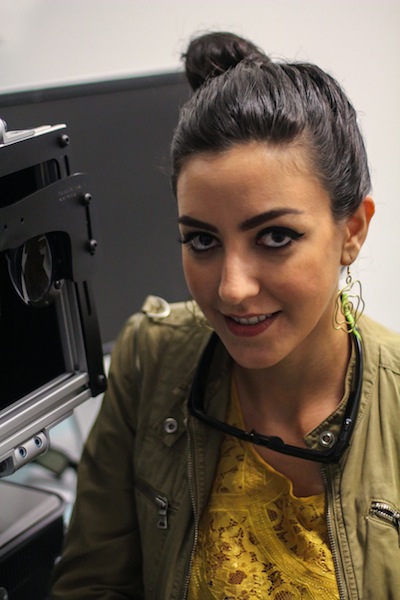
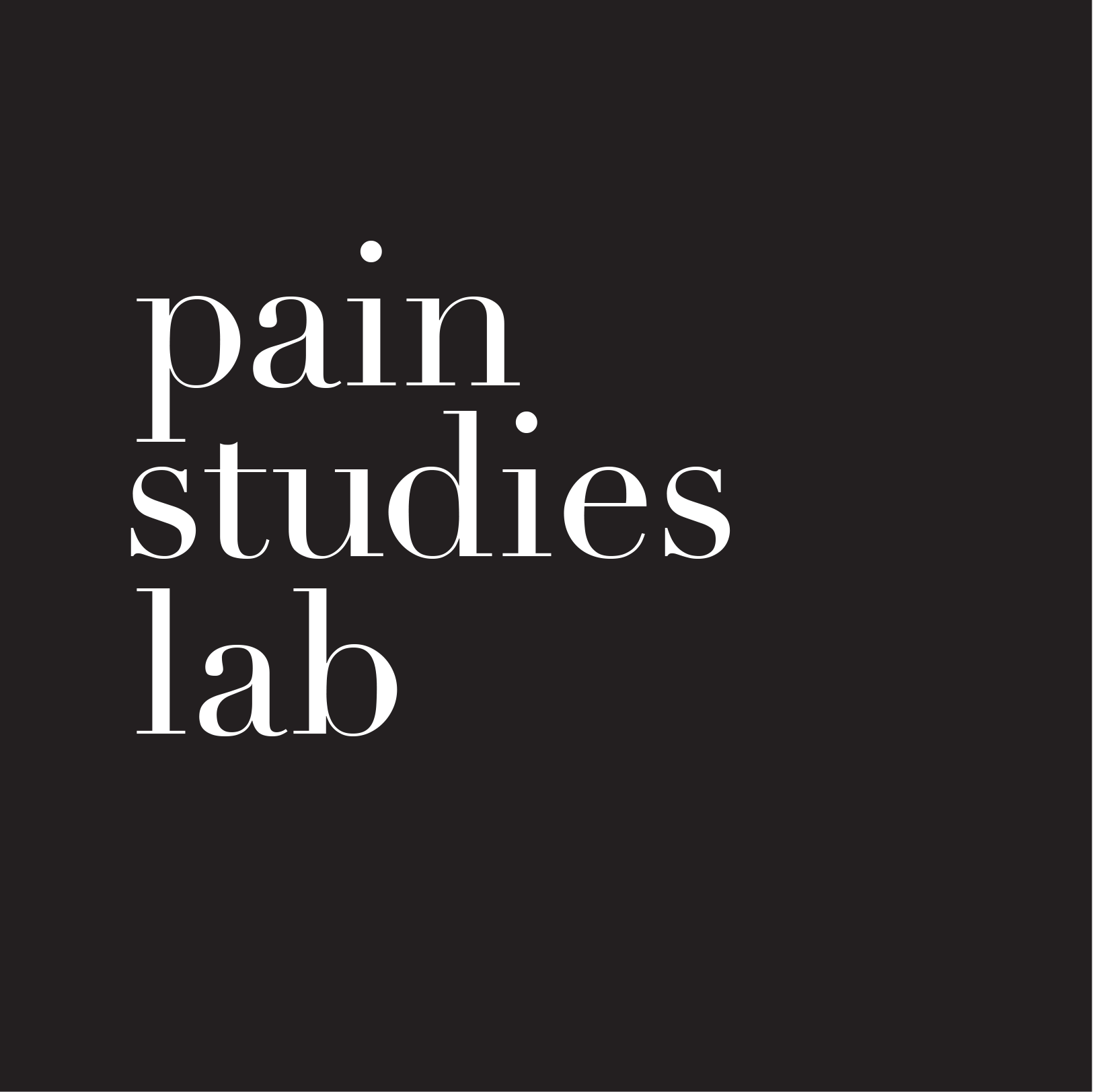
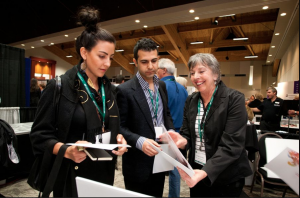


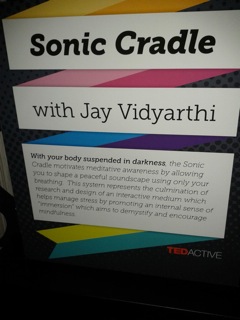

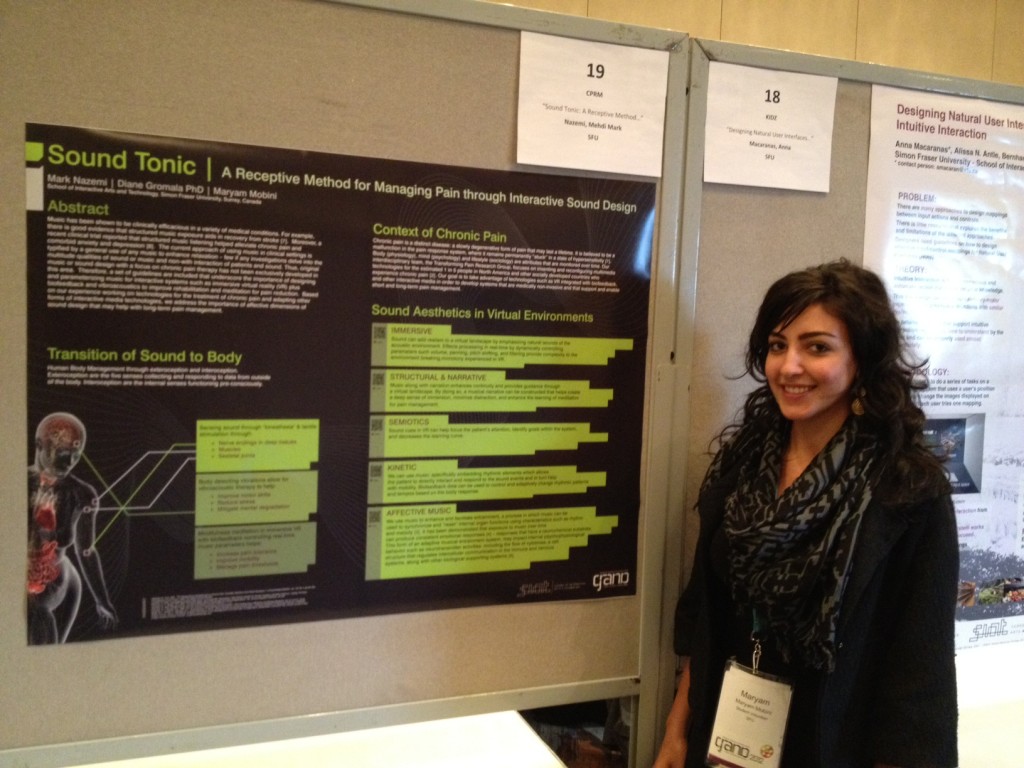
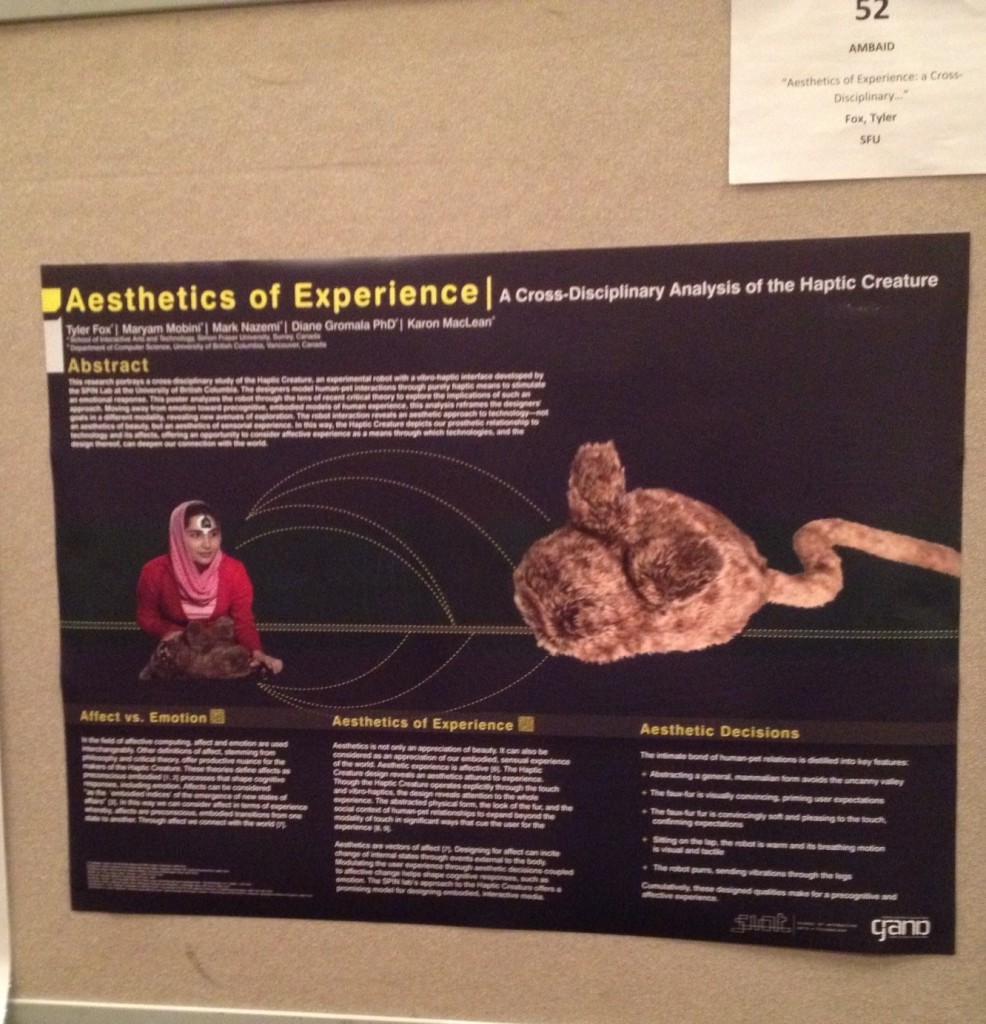
 More than one-third of Americans in their mid-50s and older have chronic pain in their neck or back and a similar percentage have chronic pain in their knee or leg. Low-income and obese adults are also more likely to have chronic pain.
More than one-third of Americans in their mid-50s and older have chronic pain in their neck or back and a similar percentage have chronic pain in their knee or leg. Low-income and obese adults are also more likely to have chronic pain.